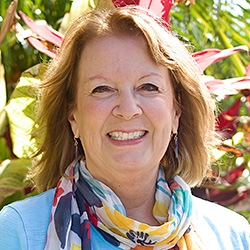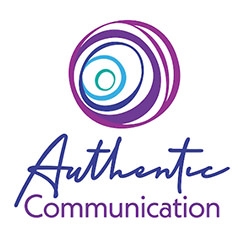
Search Results: self, and examination
-
Using real-life examples from class participants, Sylvia Haskvitz demonstrates the life-changing results of clarifying the needs underlying "shoulds." Some of the situations covered in this audio are:
- A grandmother shares how she was able to spend time with her grandchildren even when experiencing estrangement from her daughter
- A father examines how to repair a conversation with his daughter
- A woman explores her "should" thinking about her financial stability, her job and grief regarding her husband's death
- A woman connects to her deeper needs that arise with the statement "I should do my taxes"
- A woman perceives that she has conflicting needs for family harmony, relaxation and comfort when deciding whether to spend holiday time with stepchildren
If your life is fraught with "shoulds," this resource will support you in translating them into needs and, in some cases, to let them go entirely.
-
The pandemic asks us to examine the way we have always done things. It asks to try something new and notice what happens. This is an opportunity to ask why you have done holidays in a certain way and what needs it met to do it that way. Perhaps it is an opportunity to experiment and see what new things might arise. Read on for questions to ask yourself that might help you process your triggers, "should's", feelings, needs and dilemmas.
-
Trainer Tip: Anger is a prominent call to gain our attention. Mary explains why it's worth heeding that call.
-
Judgment is an attempt to protect from hopelessness or insecurity, at high cost. Instead, check in with fear, grief, or hurt. Then wonder what needs are at stake for everyone. This makes space for grief instead of anger, for negotiation rather than control, and for "calling in" rather than excluding. Wonder: “For whom would this be life-serving or not?”, “What strategies would care for all needs?” or, “What can I contribute now?”
-
As human beings, our inherent goodness makes most of us believe in equality and yet sometimes our conviction in this same 'goodness' may make us blind to the reality of our own behavior. We are so convinced about the innocence of our intention that we seize to look at the impact of our behavior and thus our unconscious biases often go unexamined and unchallenged. Diversity, equity and inclusion work will only be of lip-service until we are willing to look at our own unconscious biases. Listen as Anisha Pandya encourages you to look at the possibility of how our self-awareness is so limited and one of the ways of expanding that awareness is by moving beyond our intention, looking at the impact of our behavior and remaining open to feedback.
-
Finding your power in seemingly powerless situations doesn't mean denying what happened, your feelings, your needs, nor the behavior of others that didn't meet needs. It does mean reexamining those situations with the intention to compassionately look for your contribution and for clues to your hidden perceptual biases. Read on to learn about about finding these clues, and more.
-
Dear friends,
My book, Peaceful Living: Daily Meditations for Living with Love, Healing and Compassion has been on my mind a lot lately. It turns 20 years old next year, which I feel joyful about. Along the way, I came across this meditation that I wanted to share with you:
November 26
Change your thoughts and you change your world. – Norman Vincent PealeDeveloping Tolerance
I used to think that Chihuahuas were dumb dogs and bulldogs were ugly. Then one of my friends bought a longhaired Chihuahua named Tilly and another bought an English bulldog named Emma. Once I got to know these dogs and could see how truly sweet they are, it didn’t take long for me to fall in love with both of them.
-
Reacting is deciding what to do based on what someone else does. Responding is deciding what to do based on your own needs and values. When someone isn't responding the way you want, and you want to respond in a way that embodies your values, with warmth and patience, examine your reactions. Ask yourself how you can access compassion and action that contributes to the well-being of all.
-
- Learn how to transform NVC into a tool for systemic awareness and healing
- Examine the influence of difference, and uncover pathways that strengthen its capacity
- Learn to receive and offer feedback on impact in situations fraught with power differences
- Explore specific ways in which NVC systemically supports the full flowering of humanity
- Delve into the dynamics of cultural differences, and discover how NVC can systemically contribute to a liberation perspective










